At one point when a mum breastfeeds, she will wonder when the baby can take food from a source outside of her breasts. The phase to transition the baby to his or her first solid food is called weaning and is a cradle of uncertainty for many new parents. Sarah Shamila, the manager of Nutrition and Dietetic Services, steps up to provide some advice on this subject.

THE RIGHT TIME TO WEAN
One of the major questions new parents will ask is when should they wean a baby. Taking a leaf from the advice given by the World Health Organisation, Sarah says, "All infants should start receiving food, on top of breast milk, from six months onwards. This means the process is gradual, not cutting off breast milk from the baby’s diet but slowly transitioning him or her to new sources of nourishment.”
Aiding the search for the right time are the signs of readiness a baby will display to indicate weaning is apt. This includes demanding more feedings; sitting upright in a highchair and swallowing well; chewing on his fingers, knuckles and feet; holding his or her stead well in an upright position; and drooling less as he or she can move food to the back of the mouth to swallow.
Another easy sign to look out for is when your baby loses the extrusion reflex, which happens when he or she tries to push food out of the mouth. When a combination of the above signs starts to appear, you can be sure you can begin the weaning process.
GRADUAL IS CORRECT
This story is from the December 2017 edition of Young Parents Singapore.
Start your 7-day Magzter GOLD free trial to access thousands of curated premium stories, and 9,000+ magazines and newspapers.
Already a subscriber ? Sign In
This story is from the December 2017 edition of Young Parents Singapore.
Start your 7-day Magzter GOLD free trial to access thousands of curated premium stories, and 9,000+ magazines and newspapers.
Already a subscriber? Sign In
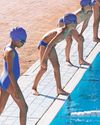
Everything You Need To Know About Direct School Admission
If your kid is good at sports, music or has other talents, the DSA programme may be his key to getting into an elite secondary school or specialised school. Here’s what you should know about the process.
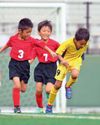
What Is The Right CCA For Your Primary School Kid?
Co-curricular activities (CCAs) aren’t just frivolous frills. They teach kids important life skills that can’t be found in a classroom lesson. EVELINE GAN finds out how to select the right one for your child.
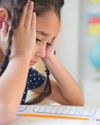
Why You Shouldn't Let PSLE Stress Take Over Your Kid's Life
PSLE preparations start in Primary 5, which means a high-pressure two years for your family. Here's how to support your child so they can do their best.
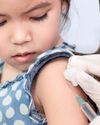
Should Your Kid Skip A Vaccine Shot?
Vaccinations are a rite of passage for every Singaporean child, but what if your kid is sick before an appointment, or misses a booster dose? Find out the answers to these and other pressing questions.
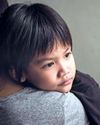
Separation Anxiety, Bullies And Other Preschool Blues
Preschool is rarely a smooth journey for children. Sasha Gonzales asks the experts how to handle the most common dilemmas, from separation anxiety to having trouble making new friends.

Is Your Kid Stressed About Starting School This Year?
School kids in Singapore are more stressed than their peers overseas. If your kid is feeling the pressure, here’s how to find what's triggering his anxiety – and how to help.

Speech Problems In Singapore Kids: When Should You Worry?
How can you help your little one get over his stuttering? Should you worry that your tot doesn’t speak as well or isn’t as talkative as his cousin? Sasha Gonzales polls the experts on the pressing speech and language issues in toddlers and preschoolers here.

The Most Common Learning Difficulties In Singapore Kids
Struggling to read, write or count is a common problem for many children, but how do you know when that struggle is actually a learning difficulty or disability? Sasha Gonzales asked three experts to tell us what signs to look out for and when to know to get help.

Can You Really Un-Spoil Your Child?
Yes, there are ways to turn things around – without losing your temper. Here, the experts share strategies you can use in common bratty situations.
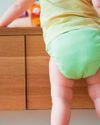
Bottoms Up!
Using cloth nappies helps save the Earth – and your wallet, too, say these mums who choose not to put their babies in disposable diapers.